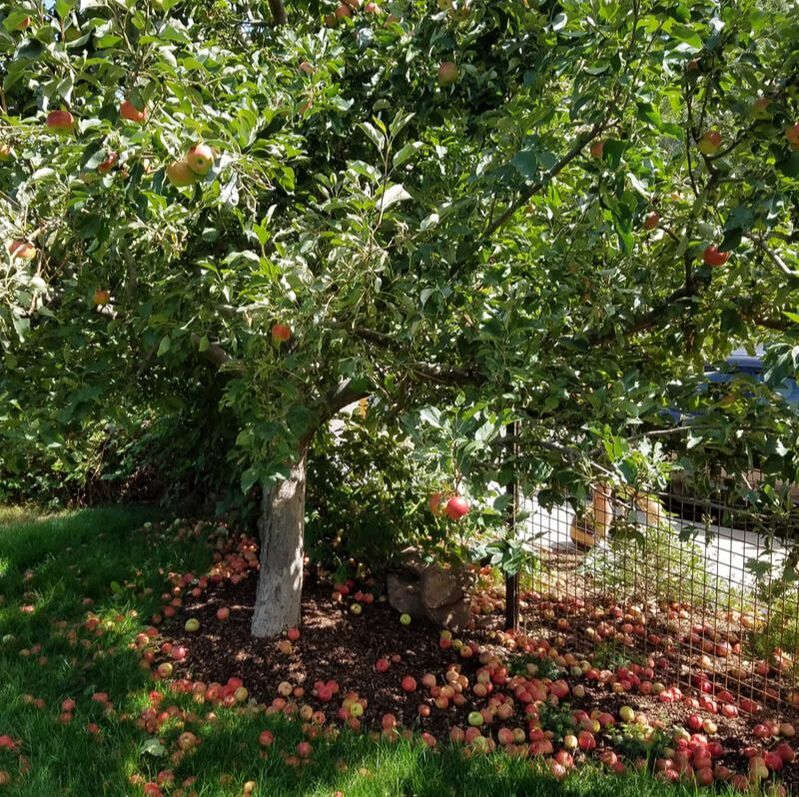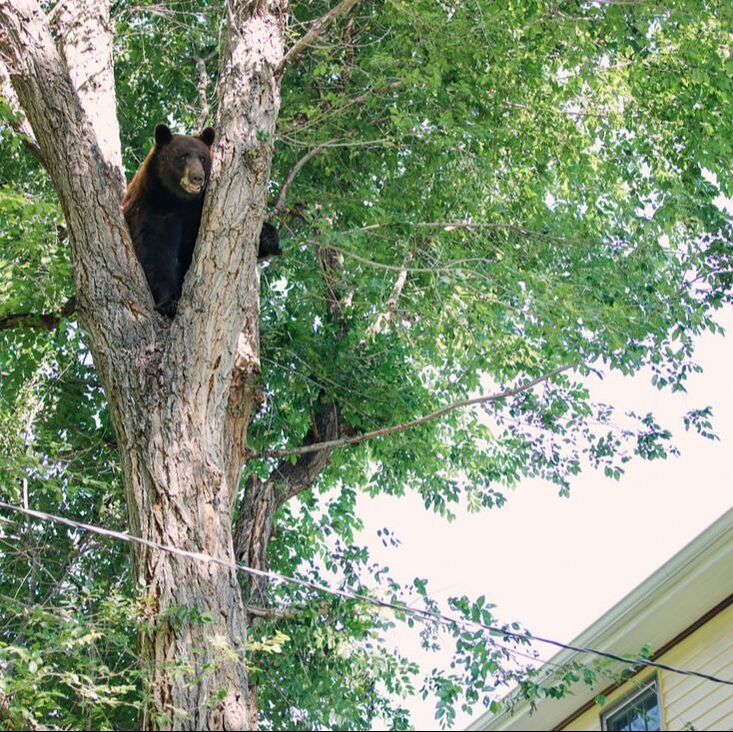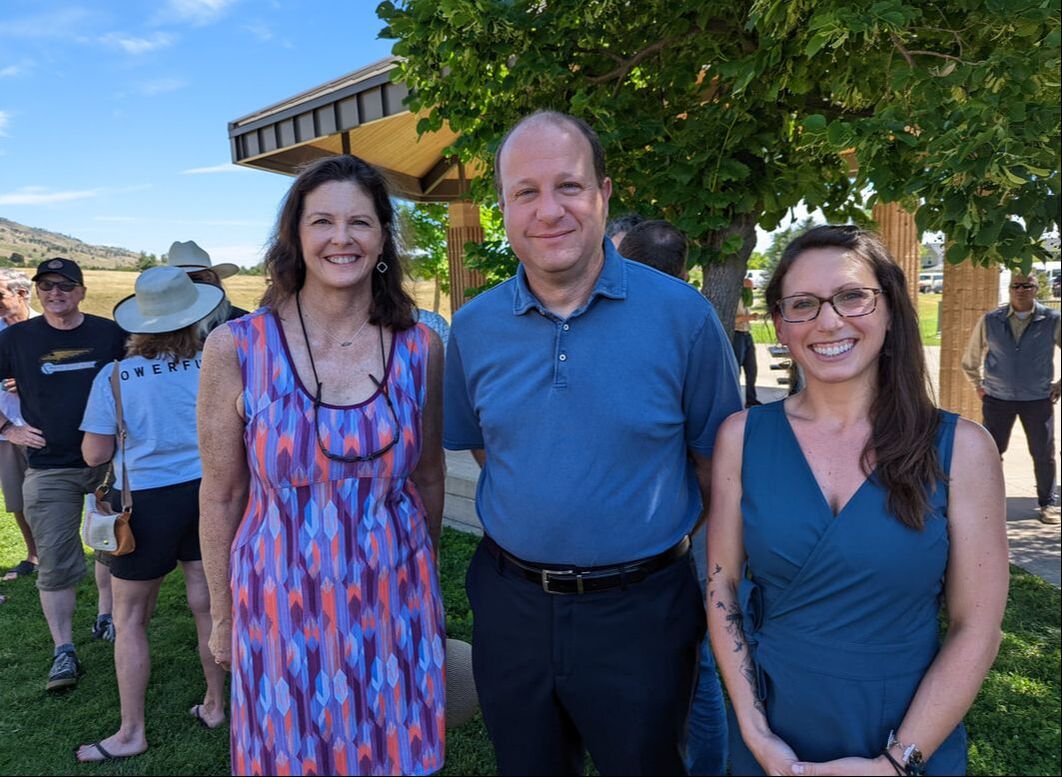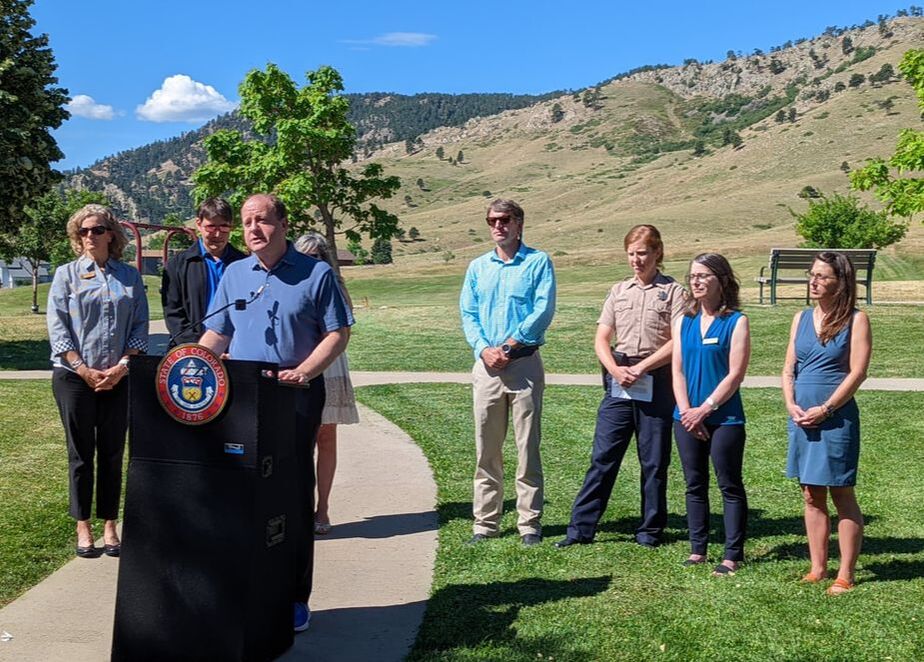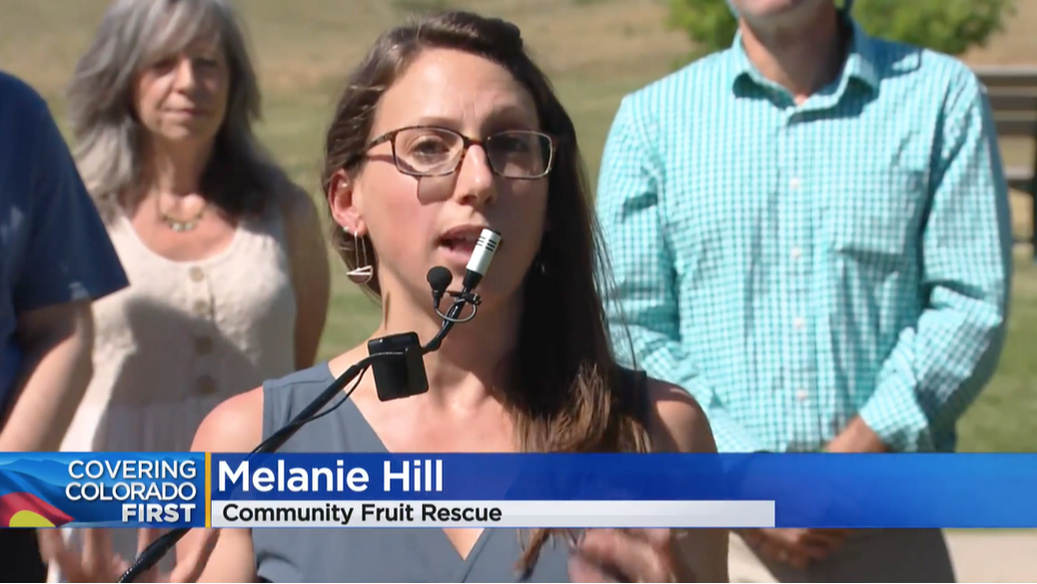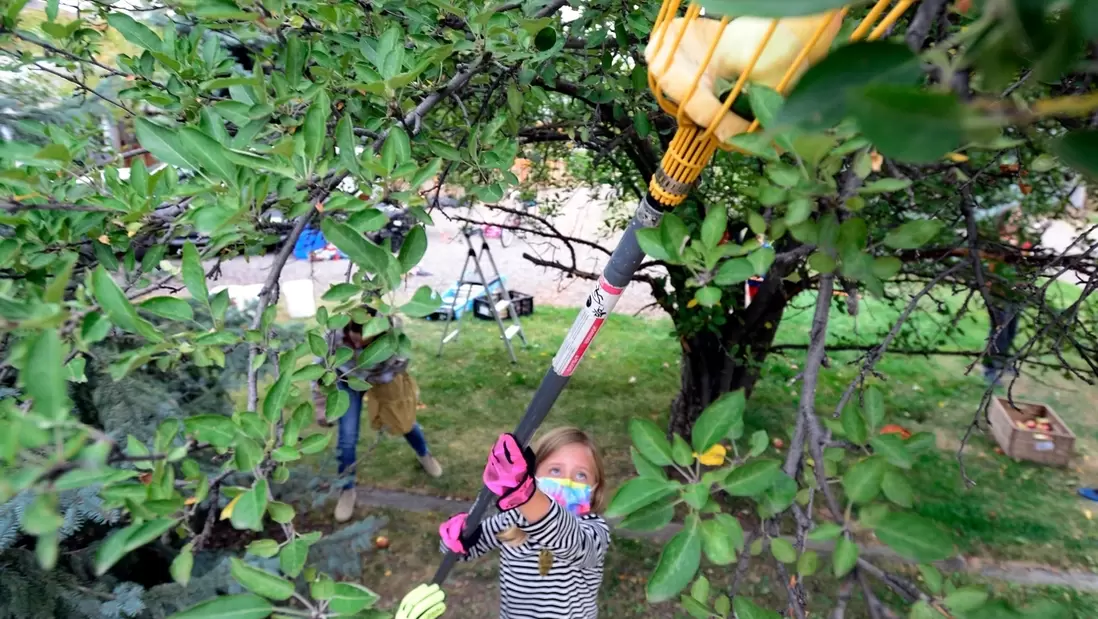Harvesting the surplus fruit growing throughout Boulder to protect black bears and other sensitive wildlife.
The connection between bears & fruit
|
Dating back to the 1880s, much of Boulder was developed as fruit orchards, and today many of the remaining fruit trees thrive throughout Boulder’s urban areas and wild lands. Unfortunately, many of these trees go by unnoticed; once the fruit ripens, it falls to the ground and is left to rot on neighborhood sidewalks, residential properties, public parks, and throughout the city.
Not only is this wasted fruit a mess for Boulder’s urban areas, but it is a dangerous attractant for wildlife. The ripe fruit is a favorite meal for animals such as mule deer and raccoons - common prey for mountain lions. And most notably, apples and pears are an enticing meal for black bears, especially during years where natural forage in the foothills is low. |
The problem
|
It's not uncommon to see black bears meandering through Boulder's neighborhoods and urban areas, especially later in the summer and throughout the fall. These omnivores are on a mission to consume roughly 20,000 calories per day as they prepare for winter hibernation. They're looking for the easiest meals possible - literally the lowest hanging fruit, if you will. The major attractants in Boulder tend to be unsecured trash and compost, bird feeders of all kinds, and fruit trees are a major concern. And as we all know, Boulder has a lot of fruit.
The bottom line is: urban areas are dangerous places for black bears. Bears that spend more time in human-populated regions risk being euthanized, hit by cars, or being poisoned from eating trash. There's also a public safety concern with having black bears wandering through our neighborhoods. |
Are you experiencing recent and/or ongoing bear activity in or near your fruit trees? Contact us ASAP so we can get that fruit removed to discourage bears from visiting your property!
Harvesting fruit to protect bears and people
To help make Boulder a safe place for bears and people, Community Fruit Rescue is launching new programming throughout the 2022-2023 harvest seasons. Here are some of the things we're doing through our new Wildlife Coexistence program. Stay tuned as we share more information in the coming weeks and months!
- Bear Conflict Harvests: CFR will quickly harvest fruit in areas of Boulder where bears are active. These harvests will focus on removing all of the fruit in a rapid manner once the problem is brought to our organization by homeowners, or our partners at the City of Boulder, Boulder Bear Coalition, or Colorado Parks & Wildlife. Contact us if you are experiencing bear activity in/near your fruit trees so we can remove the fruit!
- DIY Harvest Kits: With an option to self-harvest fruit, members of the community can rent our Do-It-Yourself Kits and either keep or donate the fruit they pick. These kits will make urban fruit gleaning easier and more accessible for volunteers and renters, and allow CFR to expand its impact to more homes. Rent yours today!
- Messaging & Outreach: a comprehensive messaging kit will be developed and share detailed information about living with bears and other wildlife. CFR Harvest Leaders will be trained on these "best practices" and be able to provide guidance to homeowners, volunteers, and the general public. (Coming soon!)
What to do if you have a bear on your property
Because of Boulder's close proximity to the foothills, black bears and other wildlife will inevitably wander into our urban areas each year. While we can't keep them out of the city 100% of the time, we can discourage them from wanting to stay. And that is the goal: don't let them get too comfortable in town. How do we do this? By removing the main reason they are lured into town: food!
Follow these tips to bear-proof your home, and learn what to do if you see a bear. More tips are available through our colleagues at the City of Boulder, Colorado Parks & Wildlife and Boulder Bear Coalition/Colorado Bear Coalition.
Follow these tips to bear-proof your home, and learn what to do if you see a bear. More tips are available through our colleagues at the City of Boulder, Colorado Parks & Wildlife and Boulder Bear Coalition/Colorado Bear Coalition.
|
IF YOU SEE A BEAR:
|
BEAR-PROOF YOUR HOME
|
Community Fruit Rescue awarded funding by Governor Polis and Colorado Parks & Wildlife to help reduce human-bear conflicts
We are thrilled to be selected as 1 of 11 organizations that were awarded funding through Colorado Parks & Wildlife's new Human-Bear Conflict Reduction Grant Program. This yearlong grant opportunity gives CFR the momentum to expand its urban harvest programming and allows us to begin building our new Wildlife Coexistence program. Our goal is to make Boulder a safer place for bears and people, and to provide a replicable model for other communities that share spaces with black bears.
Governor Polis announced the grantees on July 15, 2022, and asked CFR's Wildlife Coexistence Program Director, Melanie Hill, to briefly share how the grant would impact CFR's mission and goals. Take a look below!
Governor Polis announced the grantees on July 15, 2022, and asked CFR's Wildlife Coexistence Program Director, Melanie Hill, to briefly share how the grant would impact CFR's mission and goals. Take a look below!
|
Governor Polis announces 11 new grants from the Human-Bear Conflict Reduction Community Grant Program on 7/15/2022. |
Boulder-area efforts to prevent human-bear conflict get financial boost Daily Camera article on 7/26/2022 |

